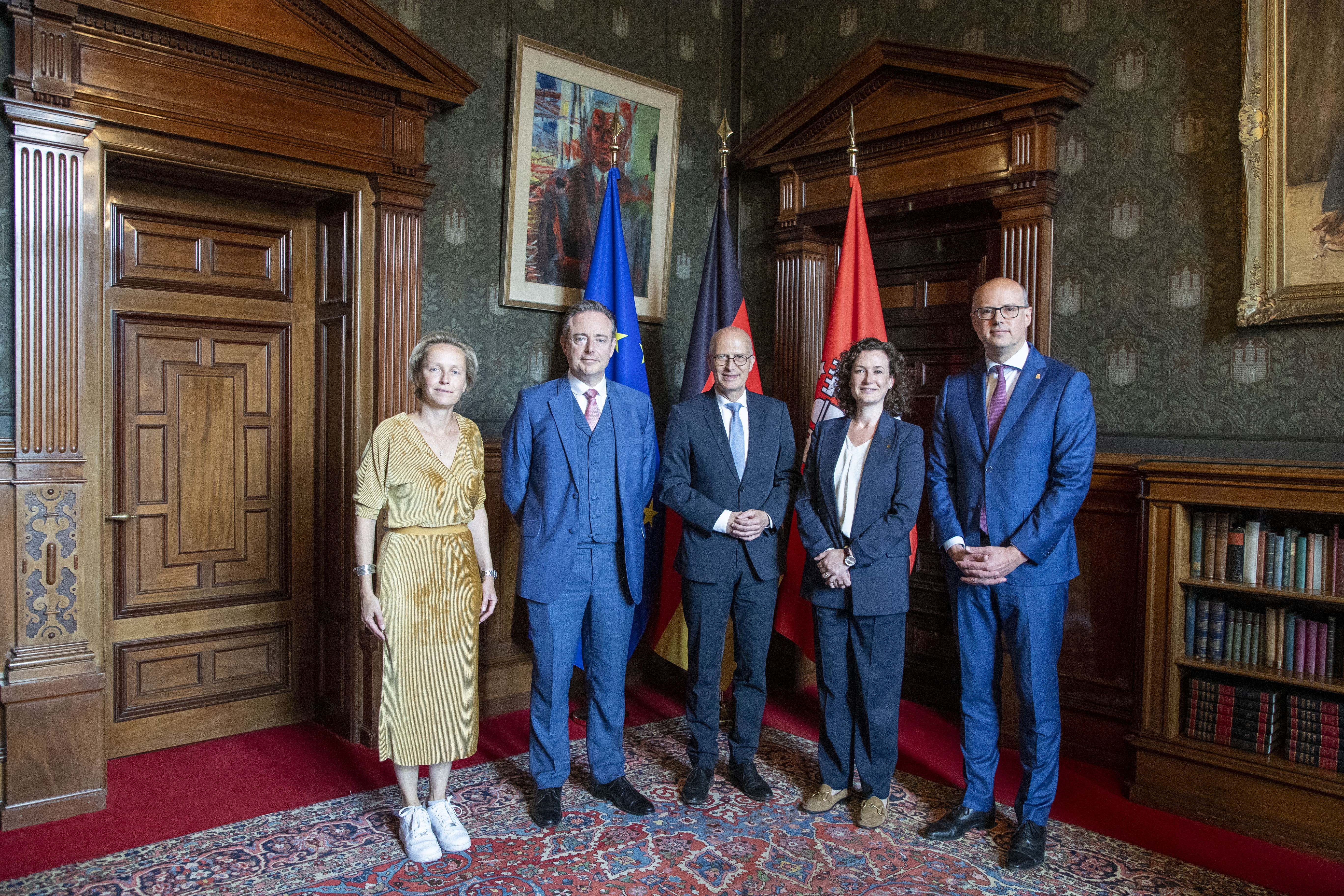Hamburg to join Antwerp and Rotterdam in efforts against war on drugs

The port of Hamburg wants to work with Antwerp and Rotterdam in the war on drugs, the mayor of Hamburg, Peter Tschentscher, said on Monday. Antwerp mayor Bart De Wever visited the German port city to discuss plans for the operation.
"Hamburg will be crucial," said De Wever. "With them on board, the three largest ports in Europe will be aligned and drug traffic will no longer be able to find its weakest spot."
Tschentscher said: "Part of the drug traffic has gradually shifted from Antwerp and Rotterdam to Hamburg in recent years. It is, therefore, crucial that we act quickly and start a collaboration with our two neighbours."
With a united front between the ports, De Wever wants to lobby to adjust the International Ship and Port Facility Security Code. These rules were introduced after the terrorist attacks of 11 September 2001 and regulate port security. De Wever aims to include strict drug controls on the shipments' countries of origin, potentially resulting in permanent bans from Antwerp's port if cocaine or other illegal drugs are found.
"We are competitors economically, but we can be partners in this"
Hamburg, in return, expects help from Antwerp to introduce shore power. This technology allows container ships to use electricity from the grid instead of running their engines when docked. "We are competitors economically, but we can be partners in this," says Tschentscher.
The ports have a non-binding memorandum to provide shore power by 2028. Annick De Ridder, Antwerp city councillor with responsibility for the port, said: "The newly constructed Saeftinghedok can be an accelerator. That dock will be state-of-the-art, largely automated, with shore power on all quays."
#FlandersNewsService | Annick De Ridder and Bart De Wever with mayor of Hamburg Peter Tschentscher
© BELGA PHOTO NICOLAS MAETERLINCK
Related news

